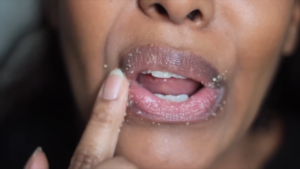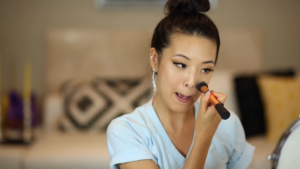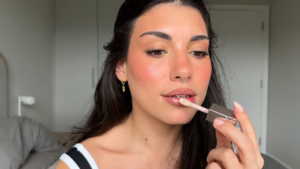The Neglected Beauty Sleep: How Late Nights Are Ruining Your Skin’s Health and Glow
Sleep is a basic human need that is essential for overall health and well-being. Apart from giving the body time to rest and recover, sleep also plays an important role in maintaining healthy skin. When we don’t get enough sleep, our skin suffers the consequences.
Impact of Sleep Deprivation on Skin
Lack of sleep can cause various skin problems, including:
- Dull, tired skin: Sleep helps repair skin cells and produce collagen, a protein that gives skin elasticity and firmness. When we don’t get enough sleep, this process is disrupted, resulting in skin looking dull and tired.
- Dark circles and eye bags: Lack of sleep can cause the blood vessels around the eyes to dilate, making them look darker and puffier.
- Acne: The stress hormone cortisol is released when we don’t get enough sleep, which can trigger excess oil production and cause acne.
- Dry and sensitive skin: Sleep helps maintain skin moisture. When we don’t get enough sleep, our skin becomes drier and more susceptible to irritation.
- Wrinkles: Lack of sleep can speed up the aging process by breaking down collagen and elastin, leading to the appearance of wrinkles.
Why is Sleep Important for Skin Health?
During sleep, our body undergoes several important processes that are beneficial for the skin:
- Cell repair: Skin cells are repaired and renewed while we sleep.
- Collagen production: Collagen, a protein that gives skin elasticity and firmness, is produced during sleep.
- Stress reduction: Sleep helps reduce levels of the stress hormone cortisol, which can trigger skin problems such as acne.
- Growth hormone release: Growth hormone is released during sleep, which helps repair skin and increases collagen production.
How Much Sleep Does Your Skin Need?
Most adults need 7-9 hours of quality sleep every night. However, each person’s sleep needs can vary. To know how much sleep you need, pay attention to your body and notice how refreshed and energized you are when you wake up.
Tips for Getting Enough Beauty Sleep
If you’re having trouble getting enough beauty sleep, here are some tips that may help:
- Set a regular sleep schedule: Go to bed and wake up at the same time every day, even on weekends.
- Create a comfortable sleep environment: Make sure your bedroom is dark, quiet and cool.
- Avoid caffeine and alcohol before bed: These substances can disrupt sleep.
- Create a bedtime routine: Do a calming activity before bed, such as reading, taking a warm bath, or listening to calming music.
- Limit use of electronic devices before bed: The blue light emitted from these devices can suppress the production of melatonin, a hormone that helps us sleep.
- Consult a doctor: If you have persistent trouble sleeping, consult a doctor to rule out any underlying medical conditions.
Conclusion
Beauty sleep is very important to maintain healthy and radiant skin. When we don’t get enough sleep, our skin suffers the consequences. By getting enough, quality sleep, we can help our skin look and feel its best. Prioritize your sleep and see the difference it makes on your skin for yourself.








